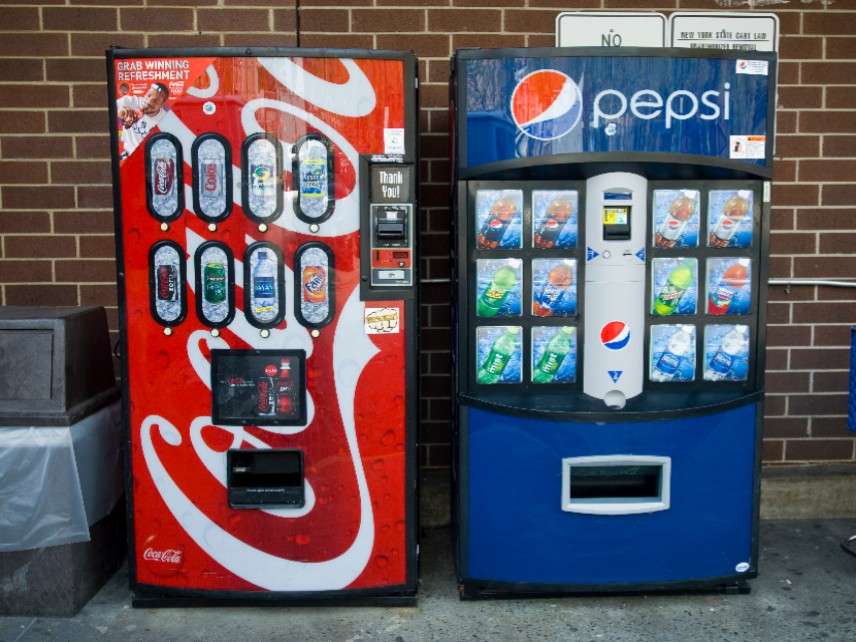State Legislatures and City Governments Are Going to Battle Over Food Taxes
Will Philly soda tax win cause local food taxes to "bubble up," or could it spur still more states to squash local food taxes?

The battle over local food and beverage taxes is heating up again.
Last week, Pennsylvania's highest court upheld the legality of Philadelphia's soda tax after a court challenge. Some believe the win by Philadelphia could embolden other cities in the state and around the country to pass new taxes.
But hold on.
Last month, California (California!) became the latest state to prohibit local governments from imposing new food or beverage taxes. While the law allows existing municipal taxes to stand, including a handful of soda taxes, the terms of the law mean that no city may adopt new food or beverage taxes until at least 2031. Arizona adopted a similar law earlier this year. Michigan did the same last year.
The push to eliminate local food and drink taxes are bubbling up thanks to consumers, the beverage industry, grocers, unions, and small businesses that are most impacted by these local taxes.
Back in 2013, in the wake of Mississippi adopting what state lawmakers referred to as their "anti-Bloomberg bill," I wrote about the growth of state laws that preempt local food taxes.
The "Bloomberg" referenced by state lawmakers was none other than then-New York City Mayor Michael Bloomberg, who was seen by many, including me, as the nation's leading elected food scold. In addition to his administration's famed ban on the sale of many subjectively large sodas in the city, Bloomberg pushed during his time in office to restrict new tavern licenses, ban happy hours, ban food donations to homeless shelters, limit restaurants' use of salt, and ban trans fats.
"That law, passed earlier this year, is by my estimate the seventh in the country to bar local governments from banning or otherwise restricting consumer food choices in restaurants and groceries," I wrote of Mississippi's anti-Bloomberg law. "The Mississippi measure also prohibits local governments from 'designat[ing] food as healthy or unhealthy,' offering a key bulwark against further potential government interference in the food choices of the state's residents."
Even as more cities around the country may attempt to adopt food and beverage taxes of their own, more states may put the brakes on such efforts.
In November, for example, Oregon voters will decide whether to preempt local food taxes in that state. In Washington State, where I live, state lawmakers, consumers, and business interests have responded to Seattle's recently adopted soda tax by pushing a ballot measure, Initiative 1634, that would preempt local governments from adopting food or beverage taxes but which would, like the California law, leave existing food taxes in place.
And in Pennsylvania, where, again, the state's highest court just upheld Philadelphia's soda tax, flagging efforts in the state legislature are seeking to preempt local food taxes. The state's preemption bill, which was tabled last month, could, if revived, override the Philadelphia tax and prevent other cities in the state from adopting new food or beverage taxes.
Some critics have lashed out at efforts to preempt local laws.
"There's a fear that as California goes, so goes the nation," said Sabrina Adler, a senior staff attorney at ChangeLab Solutions, a public-health lobby, in comments published last month by the Washington Post. "This could be the beginning of further preemption in other states."
Ninety-nine times out of 100, I share that fear. But I hope this move by California and a dozen or so other states to limit the tax burden their cities places on food consumers and business truly catches on nationwide.


Show Comments (84)